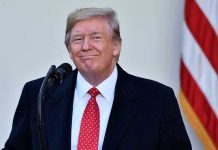
Nissan’s massive recall of nearly half a million vehicles raises serious questions about the reliability of its innovative engines and the future of the automotive industry.
At a Glance
- Nissan recalls 454,840 vehicles due to engine defects.
- VC-Turbo engines in Infiniti and Nissan models affected.
- NHTSA closes investigation as Nissan announces recall.
- Only 1.2% of vehicles expected to have defective bearings.
Nissan’s Engine Recall: A Closer Look
Nissan’s unprecedented recall involves its variable-compression turbocharged (VC-Turbo) engines, specifically those in the 3-cylinder 1.5L and 4-cylinder 2.0L models. These engines, a cornerstone of Nissan’s technological strategy, were crafted to enhance fuel efficiency and performance. However, reports of engine failures and abnormal noises in models like the 2019–2022 Infiniti QX50, 2022 Infiniti QX55, 2019–2020 Nissan Altima, and 2021–2024 Nissan Rogue prompted a closer examination.
https://www.youtube.com/watch?v=pgb3e25Ip0c
After a preliminary evaluation by the National Highway Traffic Safety Administration (NHTSA), a manufacturing defect in the engine bearings was identified. Nissan, in collaboration with NHTSA, pinpointed the defect in the main bearings and link bearings, which could lead to catastrophic engine damage and failure. The recall was officially announced on June 26, 2025, and it affects 443,899 vehicles in the U.S. and over 37,800 in Canada.
Impact on Stakeholders
The recall puts Nissan Motor Co., Ltd., Infiniti, and their extensive network of dealers in the spotlight. While Nissan bears the brunt of the responsibility as the manufacturer, Infiniti’s reputation as a luxury brand is also at stake. Dealers, tasked with inspections and repairs, rely heavily on Nissan for guidance and resources during this challenging time.
Vehicle owners, the end users, are directly affected by these safety and reliability concerns, while suppliers who provided the defective bearings face potential liability and reputational damage. The automotive industry observes this recall closely, assessing its implications on technology and safety standards.
Current Developments
Following the recall announcement, Nissan outlined a remedial action plan, indicating that dealers would inspect the affected engines. If no debris is found during these inspections, only the engine oil will be replaced. However, if debris is detected, the entire engine will be replaced at no cost to the vehicle owner. This approach demonstrates Nissan’s commitment to rectify the issue promptly.
Dealers are set to receive notifications by July 15, 2025, while customer notification letters will be sent between August 22 and 25, 2025. The NHTSA has since closed its preliminary evaluation, expressing satisfaction with Nissan’s response to the defect, as only about 1.2% of the recalled vehicles are expected to have defective bearings.
Broader Implications
This recall carries significant short-term and long-term implications for all parties involved. Vehicle owners face inconveniences due to the inspections and possible engine replacements, while dealers must handle the increased service workload. For Nissan and Infiniti, the immediate financial costs of repairs and potential reputational damage could have long-lasting effects.
In the broader context, the recall might erode trust in Nissan’s engineering capabilities, particularly concerning advanced engine technologies. It could also lead to increased regulatory scrutiny over Nissan’s quality control and manufacturing processes. Furthermore, this situation might influence the industry’s adoption of variable-compression engines, as other manufacturers watch closely.




